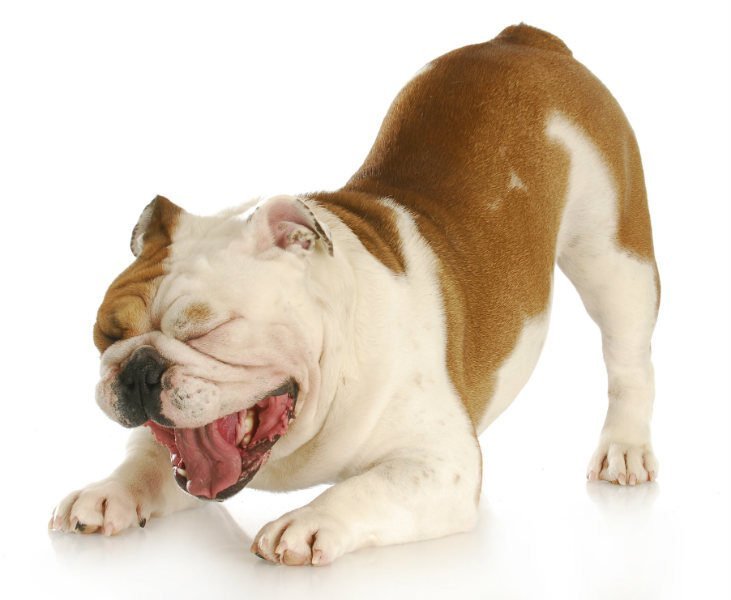Introduction
If your dog starts coughing persistently, kennel cough might be the culprit. Also referred to as canine infectious respiratory disease (CIRD) or infectious tracheobronchitis, kennel cough is a highly contagious respiratory ailment in dogs, characterized by a dry, hacking cough that may resemble your pup having something stuck in their throat.
While kennel cough may manifest as mild symptoms in some dogs, it can progress to life-threatening pneumonia in others. Recognizing the symptoms promptly is crucial, and seeking immediate treatment is essential. Fortunately, there is a kennel cough vaccination available to prevent your dog from contracting this ailment.
Here is a comprehensive overview of kennel cough in dogs, covering its symptoms, causes, diagnosis, treatment, and prevention.
Table of Contents
Symptoms of Kennel Cough
Common symptoms of kennel cough include:
- Persistent dry, hacking cough
- Nighttime coughing that disturbs your dog’s and your sleep
- Retching with the production of white foam
- Tracheal sensitivity (coughing when gentle pressure is applied to the trachea)
In severe cases, additional symptoms may include lethargy, loss of appetite, fever, and labored breathing. Dogs exhibiting severe symptoms require immediate veterinary attention for diagnosis and treatment.
Causes of Kennel Cough
Kennel cough can be caused by various bacteria and viruses, including Bordetella bronchiseptica bacteria, canine adenovirus, parainfluenza virus, and mycoplasma. It typically spreads when a healthy dog is exposed to the respiratory secretions of an infected dog through coughing, sneezing, or contact with contaminated objects.
Dogs are most vulnerable to kennel cough in crowded, poorly ventilated areas, such as animal shelters, boarding kennels, dog daycare facilities, grooming facilities, and dog parks. The incubation period is approximately three to four days after exposure.
Diagnosing Kennel Cough
In most cases, veterinarians can make a presumptive diagnosis based on clinical signs, medical history, and response to therapy. Diagnostic testing may be recommended in cases of suspected pneumonia, lack of response to supportive care, signs of systemic disease, outbreaks, or to rule out other respiratory conditions.
Common diagnostic methods include blood work, chest X-rays, and Polymerase Chain Reaction (PCR) assays for viral and bacterial detection.
Treating Kennel Cough
Treatment depends on the severity of the condition:
- Mild Cases: Supportive care, including rest, nutrition, and hydration. Cough suppressants may be prescribed.
- Severe Cases: Hospitalization, intravenous fluids, antibiotics, and possibly oxygen therapy for dogs with pneumonia.
Home Remedies
For mild cases, you can consider home remedies:
- Honey: Mix 1/2 to 1 tablespoon of honey with warm water to soothe the throat.
- Humidifier: Moistens the air to ease respiratory irritation.
- Steam Therapy: Allow your dog in a steamy bathroom during your shower for nebulization.
- Holistic Antioxidants: Supplements like dimethylglycine (DMG) can boost the immune system.
Is Kennel Cough Fatal?
While most dogs recover without complications, severe cases can lead to life-threatening pneumonia. Dogs at higher risk include puppies, older dogs, pregnant dogs, and those with pre-existing health conditions.
Recovery and Management
During recovery, avoid irritants like household cleaners and use a harness instead of a collar during walks. Full recovery entails limiting your dog’s exposure to potential respiratory irritants.
Prevention
Vaccination against Bordetella bronchiseptica is recommended to minimize the risk. When choosing grooming or daycare facilities, inquire about their vaccine requirements to ensure a protected environment. Even fully vaccinated dogs can contract kennel cough, but vaccination helps reduce the severity.
FAQs about Kennel Cough in Dogs
- What does kennel cough sound like? It typically produces a dry, hacking or goose honking-type cough.
- How long does kennel cough last? Mild cases usually recover in one to two weeks, while severe cases can last three to six weeks.
- How do you treat kennel cough at home? Holistic antioxidants, nebulization, and rest are recommended.
- Is sneezing a sign of kennel cough? Yes, it can manifest as a “reverse sneeze” due to throat or nasopharynx irritation.
- How long is kennel cough contagious? Shedding of the virus can persist for one to three weeks after infection.
- Can I give my dog over-the-counter remedies for kennel cough? Consult your veterinarian; holistic antioxidants like DMG may be recommended.
Conclusion
Understanding kennel cough and its management is crucial for ensuring the well-being of your canine companion. If you suspect your dog has kennel cough, seek veterinary advice promptly.








